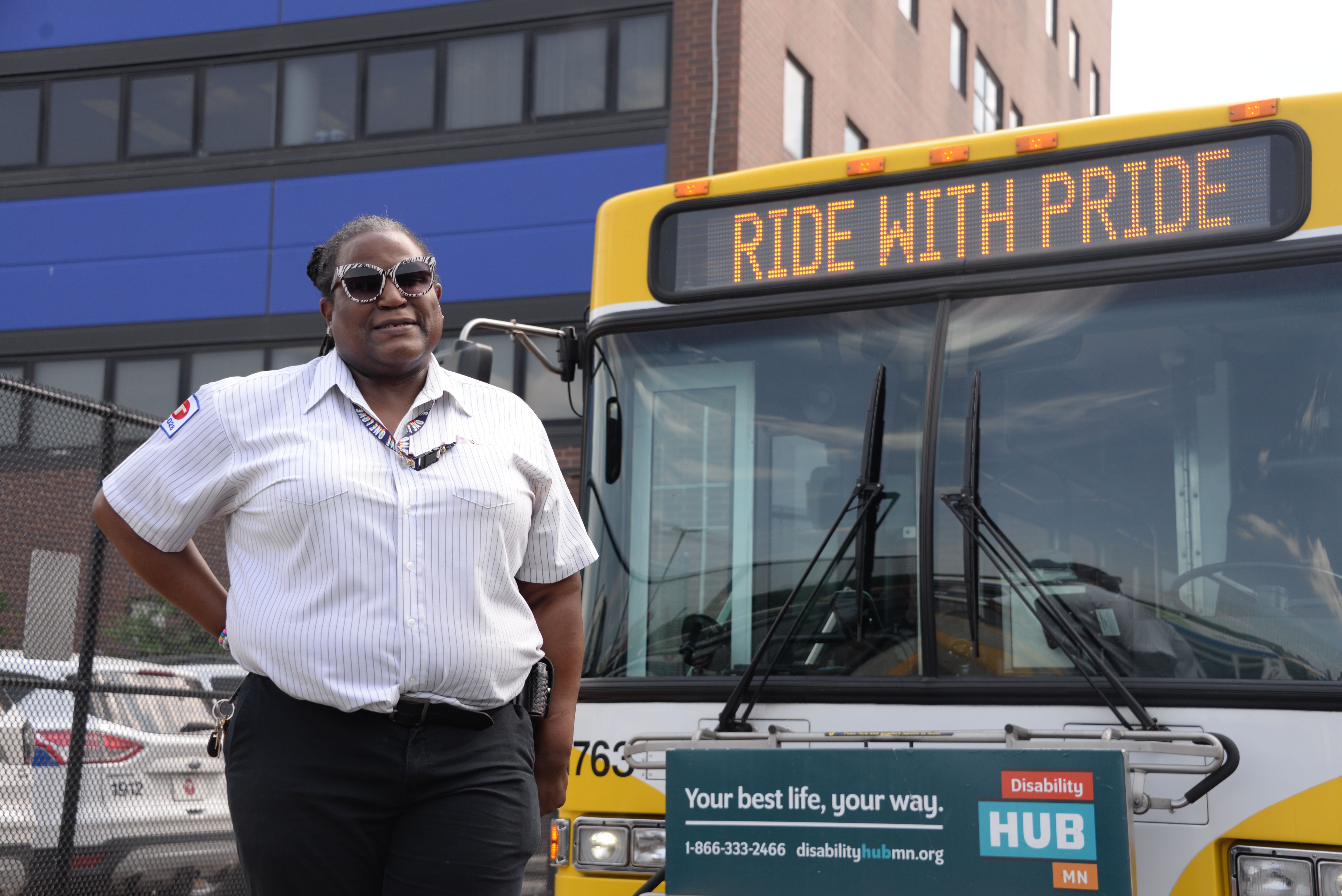
Twenty years ago, Marissa Higgins got a round-trip plane ticket to Minneapolis hoping to access the resources she was seeking to become her true self.
Higgins found what she was looking for and, with help from the University of Minnesota’s Gender Care program, completed her transition five years ago.
The move from Missouri to Minnesota also led Higgins to Metro Transit, where she has served as an operator since 2018.
To commemorate International Transgender Day of Visibility, Higgins shared her story and offered some advice for those who want to be supportive allies.
How did you begin your transition?
In 2001, I moved from Missouri to Minneapolis to utilize resources available through the University of Minnesota’s Gender Care program. I had a round-trip ticket, and said if I didn’t like it, I’d come back. I started counseling, found a place to stay, a place to work, changed my legal name and started taking hormones. I still have a long way to go, but it feels great.
How have people responded?
It has caused some problems. Some people look at you like you’re crazy, there are bathroom issues, I haven’t always had managers who understand, though that’s gotten better. There aren’t any other transgender people at Metro Transit that I’m aware of. With this job, there’s always a concern that something could go wrong, and I think there’s even more of a concern about discrimination and violence for me. But I’ve conversed with a few transgender people who appreciate seeing me and have told me I make them feel comfortable and safe and have found a supportive network here in the Twin Cities.
So, how did you come to work in transit?
I’ve driven most of my life, whether it was a school bus, a party bus, a city bus or transporting people who have disabilities. Some people will ask, ‘How do you do it and why are you working there?’ My answer is, I like to drive, and I like to deal with people. It’s fun to help people get where they need to go, and it gives me a real sense of accomplishment.
What can people do to be more supportive?
If you don’t want to use the correct pronouns, just use names and that’s it. Don’t stare and don’t ask a lot of silly questions. If people want to tell you something, they’ll tell you. Most of all, just try to be accepting.
Learn more about what it means to be transgender
International Transgender Day of Visibility is held annually on March 31 to celebrate transgender and non-binary people, and to raise awareness of the discrimination and violence they face. People whose gender identity does not match their sex assigned at birth may be transgender. Learn more at transequality.org.